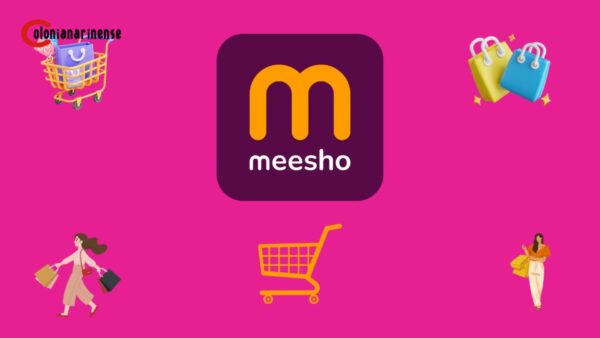Meesho Business Model: How Does Meesho Make Money?

Meesho
Meesho Business Model: Meesho, an online shopping platform owned by Fashnear Technologies Private Limited, has become a major player in India’s booming e-commerce scene. Known for its unique approach, Meesho connects resellers, suppliers, and customers, allowing small businesses to thrive by leveraging social media platforms like Instagram and Facebook. With financial backing from SoftBank, Meesho has grown rapidly, now valued at approximately $5 billion. The company prides itself on its business model, which is specifically designed to support small enterprises and individuals looking to start their own ventures.
Meesho: The Origin Story
Meesho’s journey began in July 2015 when IIT Delhi graduates Vidit Aatrey and Sanjeev Barnwal founded Fashnear Technologies Private Limited. Initially, the idea was to create a hyperlocal delivery service similar to Swiggy, but for clothing from nearby stores. Unfortunately, the concept didn’t take off as expected. Not ones to give up, Aatrey and Barnwal reimagined their platform and launched Meesho in 2016. The new concept was centered around reselling products via social media platforms, enabling sellers to reach a broader customer base. This pivot turned out to be a massive success, with Meesho quickly gaining traction. By 2023, it was recognized by Time magazine as one of the most significant businesses, having reached over 500 million downloads, making it one of the fastest-growing shopping apps. Meesho Business Model
Meesho Company Overview
- Founded: 2015
- Founders: Vidit Aatrey, Sanjeev Barnwal
- CEO: Vidit Aatrey
- Headquarters: Bangalore, Karnataka, India
- Industry: E-commerce, Social Commerce
- Primary Offering: Online Reselling Platform
- Global Reach: Ships across India, with plans for global expansion
- Valuation: USD 5 billion (SoftBank-backed)
Business Model
Meesho was built with a deep understanding of consumer behavior in India. Many Indians, particularly in rural areas, were hesitant to shop online due to distrust of platforms like Amazon and Flipkart. Instead, they relied on local stores and independent businesses. This led to a gap in the market: there were countless small businesses, homemakers, and aspiring entrepreneurs who lacked the tools or an online presence to sell their products effectively. Meesho Business Model
Vidit Aatrey and Sanjeev Barnwal saw this gap as an opportunity. They rebranded their original platform as “Meesho,” a name derived from “Meri E-Shop” (My E-Shop), allowing resellers to use social media to promote their products. Meesho empowered these small businesses by providing them with an easy-to-use online marketplace.
The platform’s social commerce model was revolutionary in India, allowing resellers to tap into their personal networks on social media platforms to sell goods, thereby increasing their reach. Meesho’s business model quickly attracted attention from investors and local sellers alike.
Revenue Model
Meesho takes a unique approach compared to other e-commerce giants. The company doesn’t charge commission fees, listing fees, or penalties for order cancellations. This approach allows sellers to retain 100% of the price difference between the purchase and sale prices, making it an attractive option for small business owners.
Here’s how Meesho generates revenue: Meesho Business Model
- Shipping Charges: Meesho charges a shipping fee that varies depending on the delivery region (local, regional, or national). While part of this cost goes to the shipping partner, Meesho retains a portion as profit.
- Advertisements & Promotions: Meesho offers paid advertising opportunities to sellers. Through cost-per-click ad campaigns, sellers can boost the visibility of their products, making them more likely to be discovered by customers. Sponsored products are featured more prominently in search results and on the homepage, driving higher sales.
- Penalties for Sellers: Meesho charges penalties to sellers for delayed deliveries or returned products. For instance, sellers who opt for “Next Day Delivery” but fail to meet the deadline are charged 2.5% of the order value per day. Additional penalties may also apply for violating supplier agreements. Meesho Business Model
Challenges and Success
While many e-commerce platforms in India focus on direct-to-consumer sales, Meesho carved out a unique niche by focusing on resellers and small business owners. The platform not only helps individuals earn income by reselling products but also provides suppliers with a vast network of sellers who can market their goods to new customers.
Meesho’s success has largely been driven by its understanding of India’s diverse market. By focusing on smaller towns and rural areas, Meesho built a loyal base of users who might not have otherwise embraced online shopping. The platform’s reliance on social media for marketing and sales has further fueled its rapid growth.
Conclusion
Meesho has transformed the e-commerce landscape in India by enabling small businesses and individual entrepreneurs to flourish in the digital age. Its innovative business model, which eliminates the high fees typically associated with selling online, gives sellers more control over their profits. As Meesho continues to grow, it’s poised to become a dominant force in India’s online shopping ecosystem, proving that there’s room for everyone in the world of e-commerce—whether they’re a major retailer or a small-town entrepreneur looking to make a mark. Meesho Business Model





